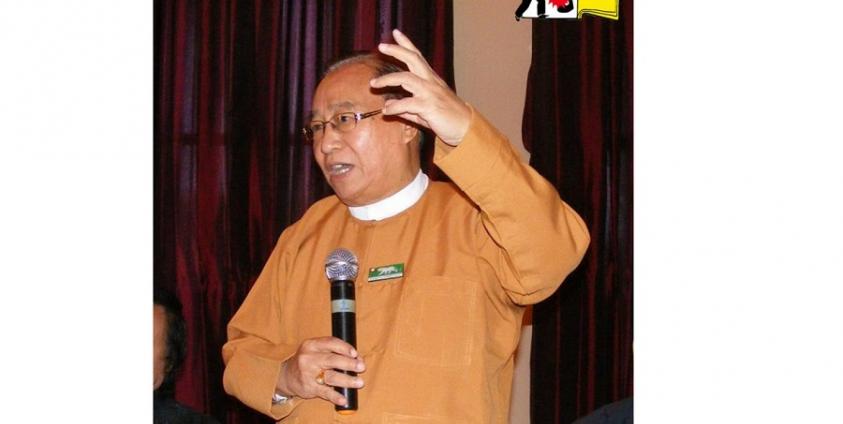Aung San Suu Kyi’s National Reconciliation and Peace Center has prohibited the Committee for Shan State Unity from meeting in Taunggyi.
The government’s National Reconciliation and Peace Center (NRPC)—of which State Counsellor Aung San Suu Kyi is the chairperson—has prohibited the Committee for Shan State Unity (CSSU) from meeting next week in Taunggyi, the CSSU chairperson told SHAN.
On Monday, chairman Sai Aik Pao said that the CSSU was contacted by the NRPC and told that a meeting scheduled for September 3-4 in the Shan State capital would not be allowed to go ahead.
The coalition of political parties, armed organizations and civil society groups was barred from holding a meeting in Chiang Mai, Thailand, last July after the Thai authorities reportedly came under pressure from the Burmese government.
“I don’t want to see this kind of incident again,” Sai Aik Pao—who is also the chairman of the Shan Nationalities Democratic Party—told SHAN. He explained that he had informed NRPC head Aung San Suu Kyi and military commander-in-chief Snr-Gen Min Aung Hlaing of the meeting one week in advance by letter. Preparations for the event were already underway.
“They informed me that the NRPC wouldn’t allow the CSSU meeting to take place and they did not give any reason,” Sai Aik Pao said, adding that the government representatives said they had sent him a letter and that he would share its contents once he had received it.
The aim of the CSSU, he said, was to “build solidarity and unity under the law among all ethnic people.”
Shan Nationalities League for Democracy spokesperson Sai Lek—whose party is a CSSU member—told SHAN that the implications of the government’s actions concerning the coalition could be far-reaching.
“NRPC chairperson Daw Aung San Suu Kyi, the President, and the commander-in-chief must clearly know that the CSSU is not going to resist or go against the country,” he said. “If they don’t clearly understand the purpose of the CSSU and if they try to ban every CSSU meeting, it will affect trust-building in the peace process. It is also an obstacle for cooperation and participation. The country’s leaders must consider this and must prevent this from happening in the future,” Sai Lek explained.
Pyidaungsu Institute director Khuensai Jaiyen emphasized the need for “all-inclusive participation and negotiation” in order to build peace in Burma.
“The country will never get peace if [opportunities] are being opened for one group and closed for another,” he said.







